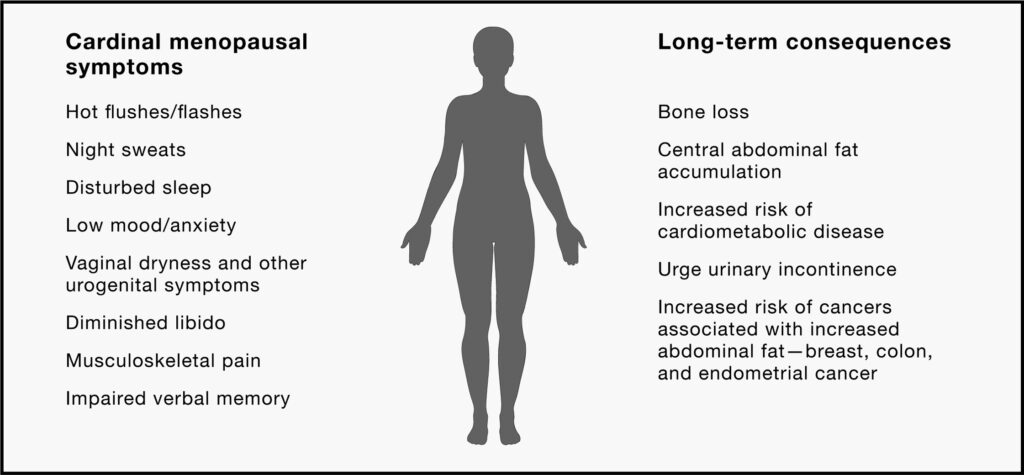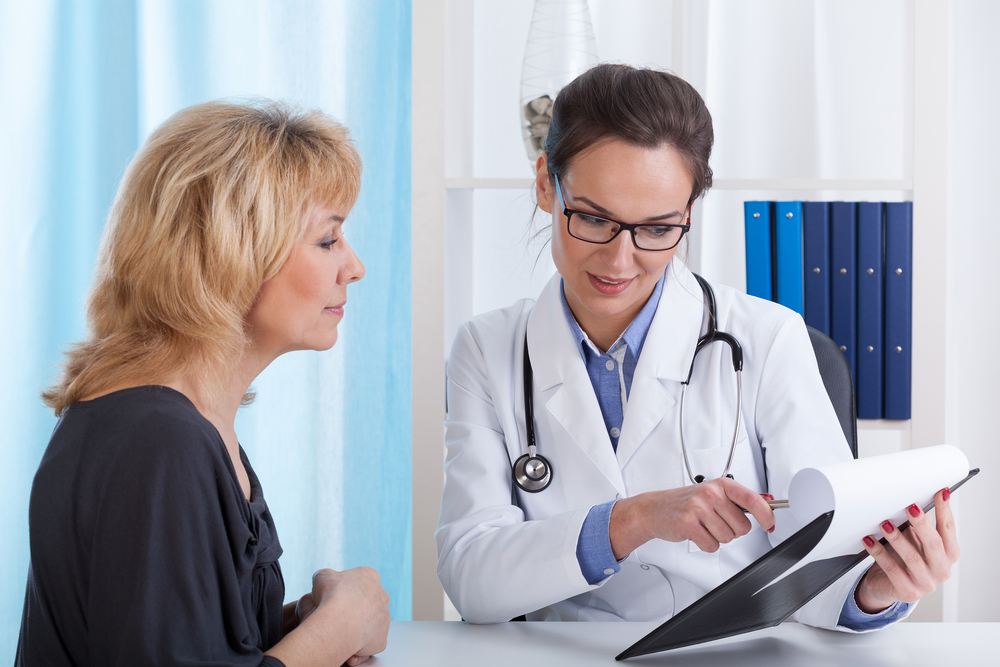Menopause was once concealed due to embarrassment, and women suffered in silence without reliable health information. Today, we’re experiencing a radical change. Menopause is now a topic of conversation at home and even at work. Women are having menopause parties to mark the end of menstruation. A growing number of celebrities — from Oprah to Michelle Obama — are opening up about their experience with menopause. Most recently, Sarah Lancashire — star of the BBC crime drama “Happy Valley” — described having hot flashes at the National Television Awards ceremony and the impact menopause was having on her life. Corporations are even offering assistance to women in the workplace who are dealing with menopause. Currently, 15% of larger corporations offer benefits intended to help women experiencing menopausal symptoms.
Understanding menopause health
Women in mid-life now want to understand peri-menopause and menopause, including symptoms and treatment options. But in the U.S., health providers with knowledge and experience treating menopause are difficult to find. Gynecologists focus mainly on the childbearing years and family practitioners often have little training on menopause. A 2017 survey indicated that many physicians had significant gaps in knowledge about menopause treatment, and only 7% said that they felt prepared to help women manage menopause.
The Menopause Society (formerly the North American Menopause Society) offers a list of menopause practitioners. This is a good place to start, but finding an available provider nearby without a long wait list is tough. To fill the void, a plethora of tele-health and “fem-tech” products have been launched in the last few years, with varied emphasis on evidence-based medicine.
The science of menopause
The effort to understand menopause treatment is difficult for most women. With few physicians available to provide clear advice, and confusing information available online, women are often left frustrated. Much of the confusion is due to misinformation about the results of the Women’s Health Initiative study over 20 years ago. The early announcements linked hormone replacement therapy (HRT) to breast cancer. This led to an immediate and lasting drop in the number of women receiving treatment for menopausal symptoms. We now know that with modern forms of hormone therapy — such as transdermal estrogen — the risks associated with HRT are minimal for most women. HRT can also have important long-term benefits (see our Hormones for Menopause page for details).
Few randomized clinical trials have been done on menopause treatment. While knowledge of the impact of various treatments has increased over time, more carefully conducted clinical trials are still needed. A recent review of the science and treatment options for menopause was published in Cell. The study of menopause and hormone therapy is complicated because some women have little difficulty during this transition, while others have debilitating symptoms. The article reviews our current knowledge of the biology of menopause, and the various hormonal and non-hormonal treatment options. The authors conclude that long-term studies are needed on the effectiveness of non-oral estradiol and testosterone, and progestogens for endometrial protection. They note also that perimenopausal women should be included in future studies.

The role of the Parsemus Foundation in menopause health
The increased public discussion about menopause is a step in the right direction! It’s important to continue the discourse, increase research, and improve medical training on menopause healthcare. To assist in disseminating information, we’ve added a webpage on our site specifically about hormone therapy for menopausal health. The page also discusses hormones after breast cancer and testosterone. It includes references to the literature if you’d like to dive deeper into the details. The goal is to empower you to make decisions about your healthcare based on scientific evidence. While the Parsemus Foundation is not a healthcare provider and cannot give medical advice, we encourage you to consult your physician to evaluate your individual situation to obtain the best health outcomes.



